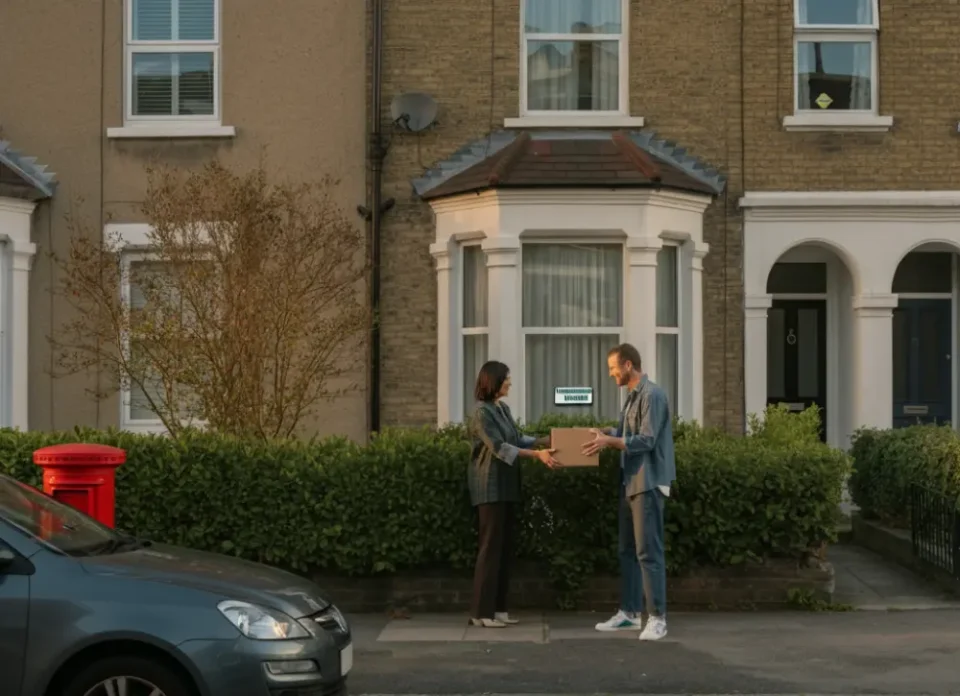Up and down the United Kingdom, each community has its own idea of what makes the perfect neighbor. These days, post-pandemic, there’s a new emphasis on looking out for one another—whether you live in a lively London estate or a quieter village in Yorkshire. With rising living costs and people spending more time at home, building good relationships is central to finding the perfect neighbor in your street.
For many, the perfect neighbor is someone who’s not only respectful but also ready to lend a hand if needed. Little gestures—like offering to collect a parcel, keeping an eye on your house, or even just sharing a smile in passing—go a long way in making a neighbourhood feel like home.
The Heart of Neighbourhood Etiquette
Spoken to a few residents recently and the consensus is clear: respect for one another’s space, time, and peace is at the core of good neighbourhood etiquette. Sarah Jones from Manchester summed it up, “You don’t have to be best friends with your neighbours, but a bit of friendliness and common sense makes life easier for everyone.”
It often comes down to small things: putting the bins out on the correct day, making sure your hedges aren’t overtaking the pavement, and keeping noise down in the evenings. Practising these basics helps prevent unnecessary friction, and makes for a more harmonious UK community—one where the perfect neighbor can thrive.
Open communication is another essential aspect of being the perfect neighbor. A quick word with a neighbour before hosting a birthday party or planning some DIY helps manage expectations and stops grumbles before they start.
Facing Common Neighbourhood Challenges
No matter how friendly your street might be, disputes do still crop up. The most talked-about issues are parking disputes, noise complaints, and—more rarely—anti-social behaviour. For additional advice on handling neighbourhood disputes, resources such as the Citizens Advice neighbour disputes guide offer helpful information relevant to UK residents. The perfect neighbor often plays a vital role in resolving and even preventing these types of conflicts.
Parking Tensions
If your road is anything like most UK streets, parking can be a real sore point. Whether it’s someone consistently blocking a drive or parking in a way that makes it hard for others to get out, tensions can bubble over. In many cases, friendly dialogue keeps things in check, but sometimes housing associations or your local council have to step in. Unfortunately, there aren’t always perfect solutions, but clear communication can ease the strain and help everyone agree on what makes the perfect neighbor when it comes to parking courtesy.
Tackling Noise Complaints
Noise complaints are common, especially in terraced streets or blocks of flats. From late-night parties to loud TVs or even barking dogs, most people just want a bit of peace at the end of the day. David Chen, a community organiser in Birmingham, puts it plainly: “It’s usually best to have a calm word first. Most neighbours aren’t even aware they’re causing bother. If the problem carries on, local council environmental teams can help settle ongoing noise complaints.”
Addressing Anti-Social Behaviour
Occasionally, issues go beyond the everyday. Anti-social behaviour—things like ongoing vandalism, intimidation, or very disruptive conduct—can make life uncomfortable for everyone nearby. Local council teams often work with police and Neighbourhood Watch groups to protect community safety and restore calm. Reporting early and working collaboratively usually leads to the best outcome for everyone.
The Role of Support and Community Initiatives
In many towns and cities, local councils are the first port of call for advice on rights and responsibilities, especially around things like shared spaces, fly-tipping, and persistent neighbour issues. Their websites are packed with information for navigating everything from tenancy problems to reporting anti-social behaviour.
What’s more, UK councils and housing associations regularly launch initiatives aimed at strengthening community bonds. From community clean-up days to street parties and gardening projects, these events help neighbours get to know one another, reducing misunderstandings and boosting neighbourhood pride. Taking part in these initiatives is a great way to embody the spirit of the perfect neighbor.
Online message boards and digital platforms are also increasingly popular across the UK, making it easier for residents to arrange get-togethers, share updates, or alert one another about local concerns.
A Fresh Take on Community Spirit
Living in today’s UK means juggling busy schedules, but many people are rediscovering the value of a supportive and aware neighbourhood. The perfect neighbor in 2025 is someone who respects boundaries, communicates openly, and takes pride in their surroundings.
Maria Fernandez, who works with a housing association in London, reflects this trend: “People are more willing these days to check in on older neighbours or join in with community activities. It’s brought about a real sense of belonging.”
Conclusion: It Starts With Us
The idea of the perfect neighbor isn’t about grand gestures—it’s about simple acts of kindness, respect, and a willingness to look out for one another. Whether that means helping with the bins, keeping an eye on children playing outside, or just being considerate about noise, every small action counts.
And when community challenges arise, remember there’s support—from local council teams and organisations like Citizens Advice—to help guide you through issues related to noise complaints, anti-social behaviour, parking disputes, and more.
Ultimately, building a better UK community starts right on your street—with each of us striving to be the perfect neighbor. With a little patience and plenty of understanding, any community can thrive.
You may also read : Shanghai Port FC: Rising Stars of the Chinese Super League
You may visit our official website : nbatimes

